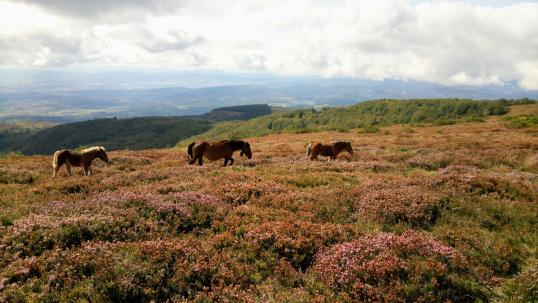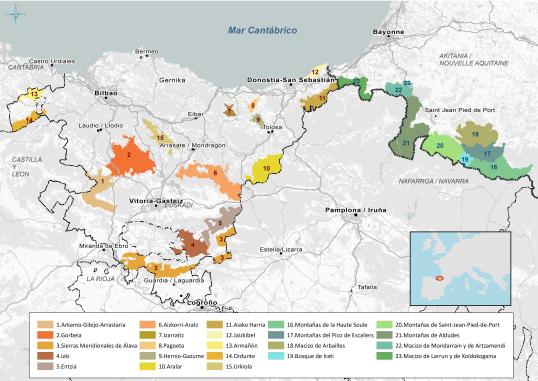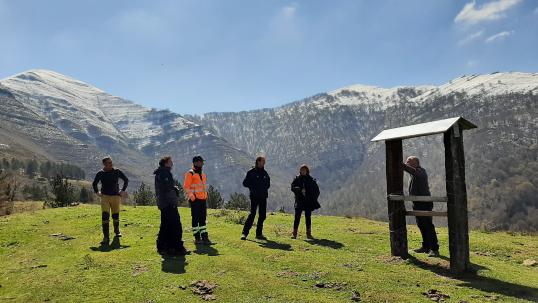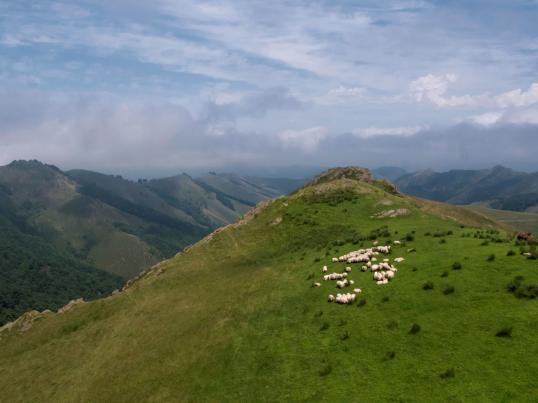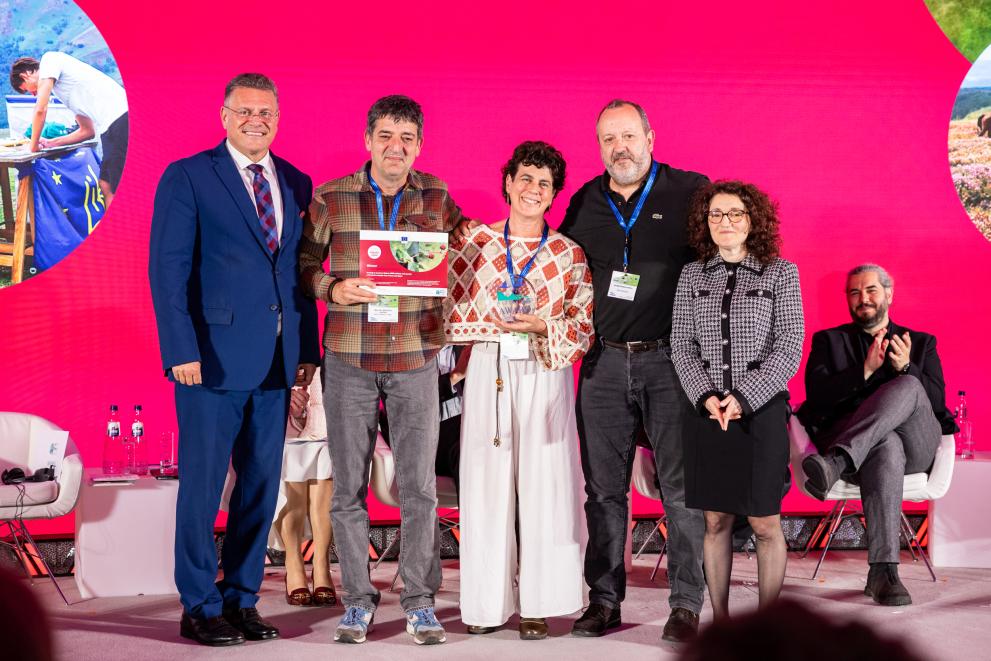
About the winner
| Lead applicant | Fundación HAZI |
| Category | Cross-border cooperation |
| Countries involved | France, Spain |
Main Natura 2000 site | 23 sites in France and Spain, including Aizkorri-Aratz, Gorbeia and Montagnes de Saint-Jean-Pied-de-Port |
Overview
This application, funded by the EU LIFE programme (Oreka Mendian project), established a cross-border partnership to address inappropriate grazing practices.
Across Europe, the decline of traditional pastoralism is a major threat for grassland ecosystems and their outstanding biodiversity. Both the lack of grazing and over-grazing can result in the loss of open grassland ecosystems. Despite their key importance for mitigating climate change, open grasslands are therefore amongst the most threatened ecosystems in Europe.
Led by the HAZI Foundation (Department of Economic Development, Sustainability and Environment of the Basque Government), this partnership involved cooperation among several regional authorities from Spain, the French Conservatoire d´Espaces Naturels en Nouvelle-Aquitaine, and Euromontana (a cross-European, multi-sectoral association for cooperation and development of mountain areas).
This cross-border initiative restored 1,670 hectares of habitats, removed invasive plants and implemented joint grazing plans. Capacity building targeted 60 people through workshops and expert groups, and led to the establishment of a "Group of Experts in Pasture Research in the Northern Pyrenees." The expert group, in collaboration with Euromontana, produced a best practice manual for mountain pasture conservation.
The partnership also developed a joint conservation strategy for grassland habitats and associated species in the Spanish-French Pyrenees. It targeted eight French and 15 Spanish Natura 2000 sites, enhancing the condition of 12 pasture habitats. Addressing complex pasture management issues, the project defined parameters for pro-biodiversity grazing, analysed socio-economic variables, and established the grazing capacity of specific grasslands according to the kinds of livestock grazed.
A key contribution of the project is the SIGPASTOS web application for sharing information on vegetation and habitats, livestock use and pasture productivity, combining the spatial databases from all the Natura 2000 sites on the French side of the border. This was made available to local administration staff responsible for grazing control.
The project’s achievements are highly replicable for other mountain pasturelands across the EU. All tools and methodologies developed by the project are fully adaptable to other areas, and have so far been shared with over 1,300 people.
Pictures from the winner
Details
- Publication date
- 14 March 2024 (Last updated on: 14 March 2024)
- Author
- Directorate-General for Environment

